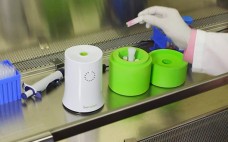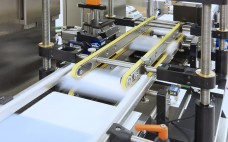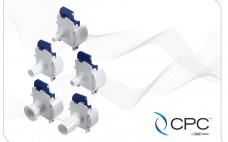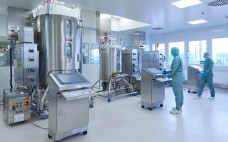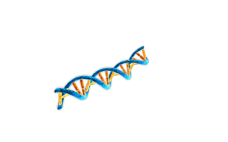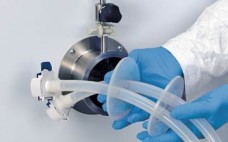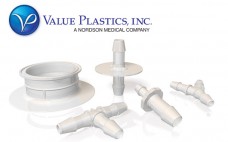Advances in cryopreservation techniques have been crucial for the substantial progress achieved in many fields, including cell biology research, drug discovery, bio-banking, and assisted reproduction. While cryopreservation techniques have markedly improved, downstream cell thawing techniques have thus far been neglected, even though proper thawing of cryopreserved materials is essential for optimal cell viability. The success of high-promise fields such as cellular therapy and regenerative medicine require reproducible and standardized handling of the therapeutic cells, which includes thawing both during manufacturing…
Manufacturing
Secondary Packaging: Creating Value with Product Lifecycle Management
with Daniela Guttmann and Susanne Hall Increasing regulatory requirements combined with the market pressure to develop patient-friendly drug delivery systems make product lifecycle management (PLM) a decisive field for today’s pharmaceutical and biotechnology companies. Their strategic service providers also are affected by those conditions. For example, as an internationally operating contract development and manufacturing organization (CDMO), Vetter reports an increasing number of life-cycle management projects with its customers in the past years. Learn more in this white paper from Vetter.…
The Path to Genderless Connectors: How Genderless Connectors Lead to More Flexibility, Faster Changeovers and Reduced Costs
Genderless sterile connectors — with their ability to interconnect with each other without male/female limitations — can enhance the flexibility of single-use systems in a wide range of bioprocessing applications. Genderless connectors reduce system complexity, which in turn lowers requirements for inventory management, simplifies operator training and reduces misconnections in the manufacturing suite. In fact, it’s possible this new connector design will drive industry change similar to the transition from stainless, reusable systems to single-use. How can something as small…
Single-Use-Bioprocesses – Hype or Future Technology?
Single-use technology have become indispensable in biopharmaceutical manufacturing. Rentschler is one of the first contract manufacturers worldwide to establish a complete single-use facility for the upstream and downstream processes.
Security of Supply for Chromatography Media
This white paper discusses GE Healthcare Life Sciences extensive preventive actions taken to help secure a continuous supply of chromatography media for biopharmaceutical manufacturers.
Setting the Standard for Plasmid DNA Production
Boehringer Ingelheim stands out due to global contract manufacturing excellence in plasmid DNA production. It is one of the world’s leading companies for contract development and manufacturing of biopharmaceuticals
Applying Single-Use Efficiencies to Room-to-Room Fluid Transfer
This report explains how a wall pass-through system that incorporates Single-Use components can help speed and streamline operations, reduce contamination risks and maintain isolated environments.
The Importance of a One-Stop-Shop-6 Questions to Ask Your Fluid Management Component Supplier
A one-stop-shop fluid management component supplier assures quality, streamlines processes, and limits costs. To be certain you receive the preeminent and safest single-use component, take time to evaluate your fluid-management supplier or a supplier under consideration by asking the 6 important questions we pose in this whitepaper. Your supplier’s answers will help determine if the company is a steadfast partner and one-stop-shop committed to helping you pass FDA validation. You also will learn your supplier’s willingness to provide: the best…
An environmental life cycle assessment comparison of single-use and conventional bioprocessing technology
Single-use technologies offer an attractive option for biopharmaceutical manufacturing, but their environmental impact needs be considered. This paper documents the findings of a Life Cycle Assessment (LCA) study comparing single-use and conventional bioprocessing technology for the production of monoclonal antibodies (MAbs). The study examines the life cycle environmental impacts at 100 L, 500 L, and 2000 L. The results presented focus on the 2000 L production scale. This assessment was reviewed by a third-party review panel. The results demonstrate that…
Six Essential Workflow Steps for Paperless, Automated, End-to-End Environmental Monitoring
The consequences of microbiological contamination range from FDA warning letters through product quarantines and recalls all the way to plant shutdowns. This makes quality control, specifically microbiological and environmental monitoring (EM) a mission-critical priority for pharmaceutical and biotechnology drug manufacturing operations.
Are you currently struggling with integrating a home-grown, paper-based or semi-automated EM system to your LIMS only to find out that it’s error-prone and resource hungry? Are your current LIMS or IT systems over extended when it comes to customizing automated, paperless, mobile data capture and workflow management for EM? Are you searching for a proven, best-practices approach to automate EM and LIMS workflows and reporting in a cGMP environment without hindering new product development and production?
This whitepaper provides an overview of the essential workflow steps for implementing a paperless, automated, end-to-end environmental monitoring solution to increase productivity, reduce compliance risk and generate a healthy return on investment.

